Books of the month: From Dave Eggers’ The Captain and the Glory to Hayley Nolan’s corrective history of Anne Boleyn
Martin Chilton reviews five of December’s best books for our monthly book column

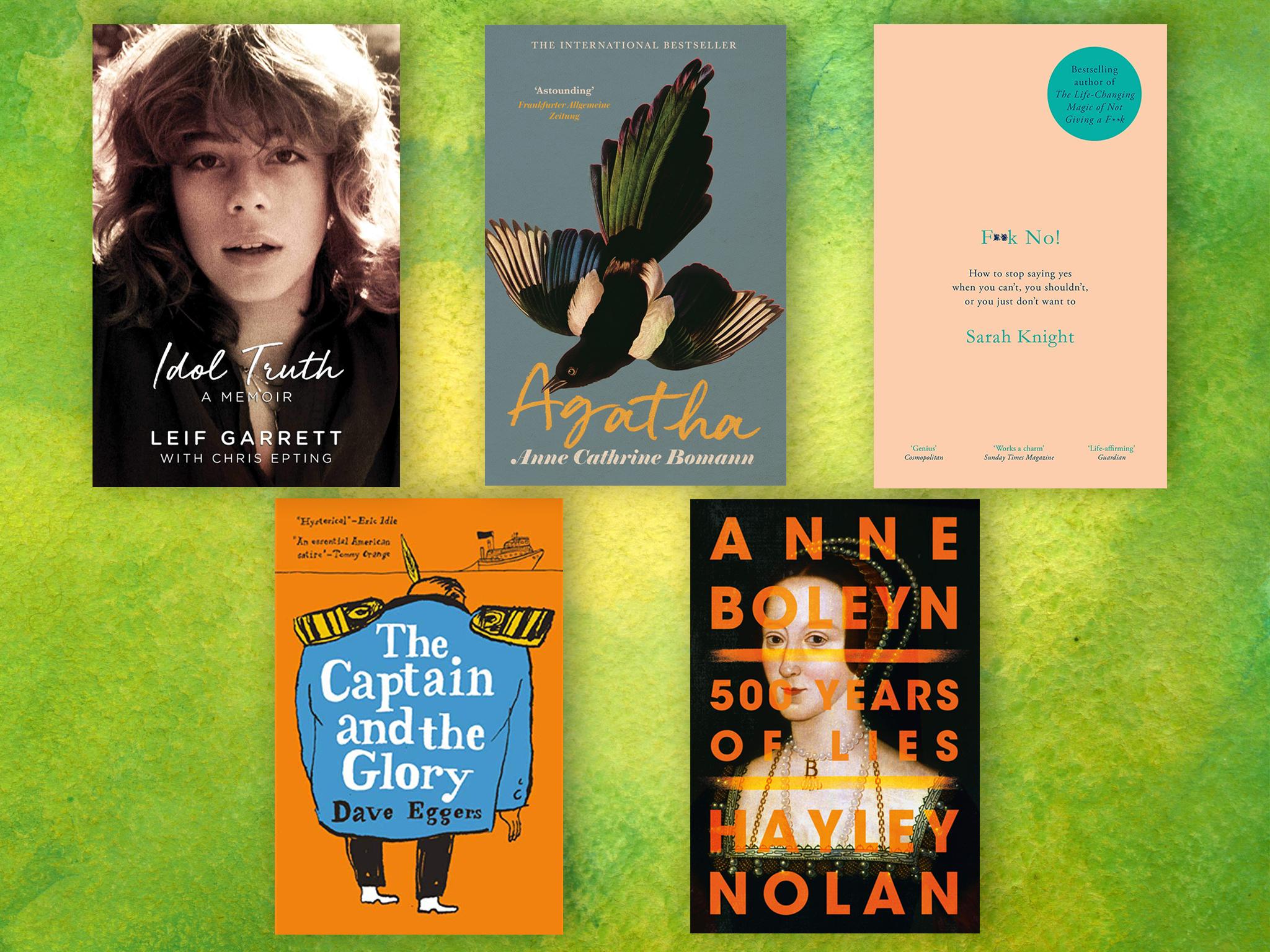
Your support helps us to tell the story
From reproductive rights to climate change to Big Tech, The Independent is on the ground when the story is developing. Whether it's investigating the financials of Elon Musk's pro-Trump PAC or producing our latest documentary, 'The A Word', which shines a light on the American women fighting for reproductive rights, we know how important it is to parse out the facts from the messaging.
At such a critical moment in US history, we need reporters on the ground. Your donation allows us to keep sending journalists to speak to both sides of the story.
The Independent is trusted by Americans across the entire political spectrum. And unlike many other quality news outlets, we choose not to lock Americans out of our reporting and analysis with paywalls. We believe quality journalism should be available to everyone, paid for by those who can afford it.
Your support makes all the difference.Santa’s sleigh is likely to be heavy with empowerment books this Christmas, as the publishing world brings out its usual December glut of guides to mental wellbeing, bodily cleansing and dieting (collagen seems cool this year). There’s nothing wrong with new year’s resolutions, of course, but this splurge of advice brings to mind the late George Carlin’s routine: “If you are looking for self-help, why would you read a book written by somebody else? That’s not self-help – that’s help. Try to pay attention to the language we’ve all agreed on.”
Sarah Knight’s F**k No! How to stop saying yes when you can’t, you shouldn’t, or you just don’t want to is a manual for learning to say “no” with confidence. One person it was dangerous to refuse was Henry VIII. In the entertaining Anne Boleyn: 500 Years of Lies, historian Hayley Nolan repositions Boleyn as an enlightened progressive. She made the mistake of marrying a “high-functioning narcissistic sociopathic”.
In Dave Eggers’ witty fable The Captain and the Glory, the fictional narcissist who takes command of a ship believes “all books are written by people who could not get erections”. It’s unlikely that macho Ernest Hemingway would have agreed. His wide-ranging travels in search of action are explored by his great-granddaughter Cristen Hemingway Jaynes in Ernest’s Way (Pegasus Books). The For Whom the Bell Tolls author often challenged people he’d just met “to an impromptu spar”. Luckily for him, he drank in elegant London areas like Mayfair and Pimlico. There is also a chapter on Hemingway’s time in Paris, a city that provides the setting for Agatha, a moving debut novel by Danish writer Anne Cathrine Bomann.
December’s Star Wars film has spawned several book spinoffs, including The Art of Star Wars – The Rise of Skywalker by Phil Szostak (Abrams), and Star Wars: The Rise of Skywalker, The Visual Dictionary (DK). There are also a couple of notable music books. Prince fans will enjoy the illustrated tribute My Name is Prince (Amistad/Harper Collins), which celebrates the 25-year collaboration between acclaimed photographer Randee St Nicholas and the groundbreaking musician. Idol Truth, a memoir by former teen pop idol Leif Garrett, contains disturbing stories about his own dysfunctional life. His account of the creepiness of Michael Jackson is stranger than fiction.
In the latest of our books of the month column, we review five books published in December 2019.
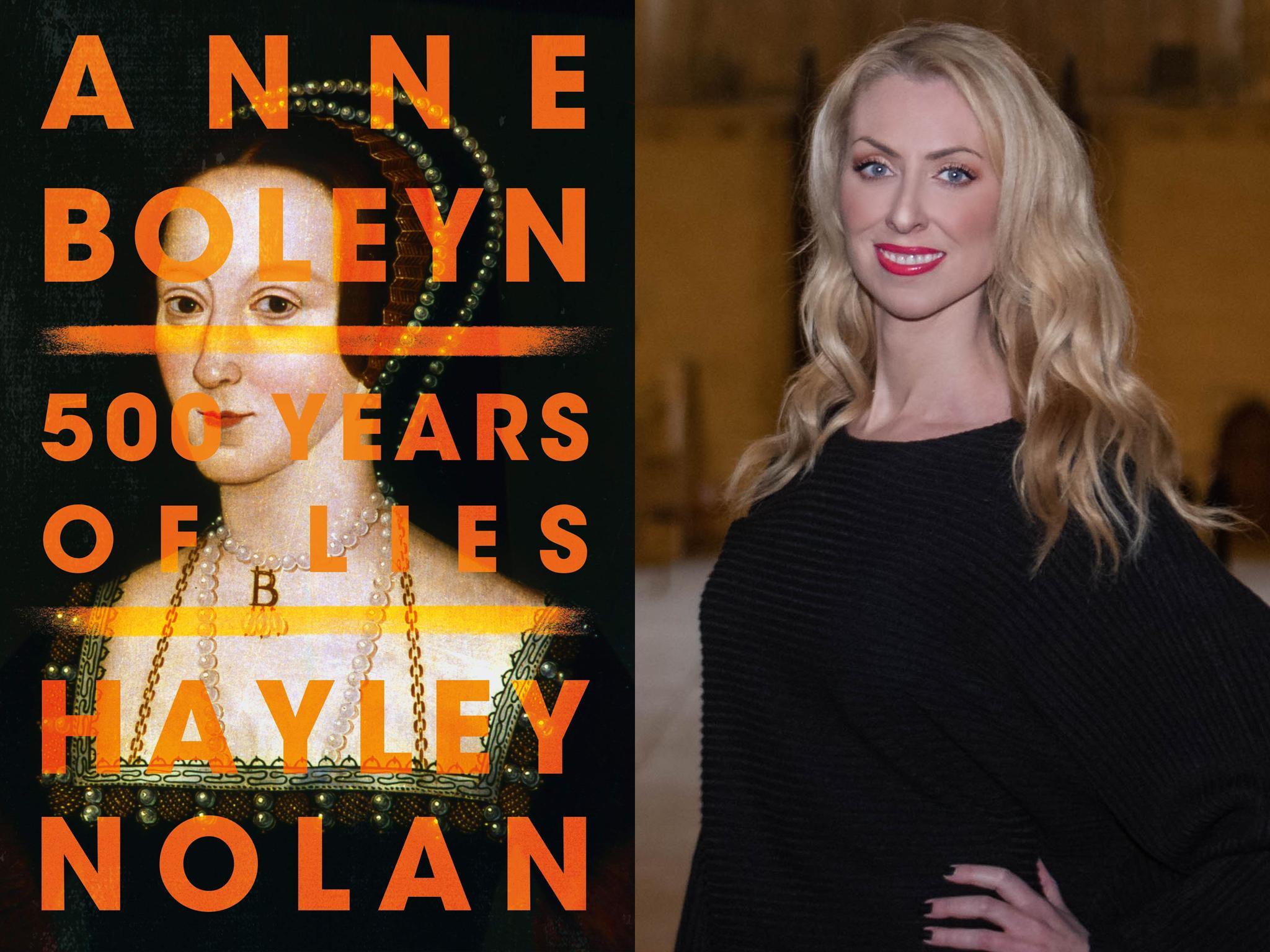
Anne Boleyn: 500 Years of Lies by Hayley Nolan ★★★★☆
“Anne Boleyn was a kick-ass young woman,” writes Hayley Nolan in her new corrective history of Henry VIII’s wife. Nolan styles herself as a “Tudor whistleblower”. Her dynamic book is a direct response to what she describes as the lazy writers and sexist historians who have misrepresented Henry VIII’s second wife as little more than a “scheming seductress”. Her well-researched book is also a challenge to the glib “divorced, beheaded, died; divorced, beheaded, survived” way of presenting Henry’s habit of having out-of-favour women brutally killed.
Nolan, the writer and presenter of the hit podcast The History Review, recasts Boleyn as a bold fighter for religious change. As Queen of England, Boleyn put evangelicals in high-profile positions and she exposed the sale of fake holy relics. During her three-year reign, she also championed young and poor people, setting up educational scholarships. Nolan argues that Boleyn’s power to do good has been censored for five centuries, adding, for balance, that this was “by men and an alarming number of female writers”.
She offers a fascinating alternative account to the “slutty narrative” that defined Boleyn, who has often been framed as a promiscuous and self-serving social climber, out to “snare” the king. Nolan does not whitewash Boleyn’s character. She details the side of the queen’s character that was excitable, paranoid and prone to issuing “childish threats”.
Boleyn had much to be paranoid about, of course, not least that the man she married was quite happy to see his wives beheaded. Nolan takes her own sword to Henry’s grotesque character. She describes him as “an undiagnosed, high-functioning sociopath”, and a narcissist with borderline personality disorder. His behaviour pattern with women was to “idealise, devalue and discard”. He was supported by a duplicitous, backstabbing cadre of men. As to whether he was ever in love with Boleyn, Nolan states: “I hate to be pedantic about this, but we cannot call a man who murdered two of his wives ‘romantic’”.
Anne Boleyn: 500 Years of Lies is a powerful plea to stop normalising or romanticising the narrative around this brutal era. Nolan’s rebuttal of “anti-Boleyn propaganda” has a modern energy. When Nolan discusses Henry’s advances to the young Boleyn, for example, she notes: “So far, so Hollywood. Anne could hardly tell His Majesty to back off and jog on.” The slang may ruffle old-style academic feathers but, overall, Boleyn is well served by a fresh perspective.
Nolan also includes a mention for a minor character from that fateful day of 19 May 1536 that history books sometimes overlook. Spare a thought for the poor woman who was left clean up the severed head after Boleyn was decapitated with one blow of a sword.
Anne Boleyn: 500 Years of Lies by Hayley Nolan is published on 1 December by Little A, £8.99
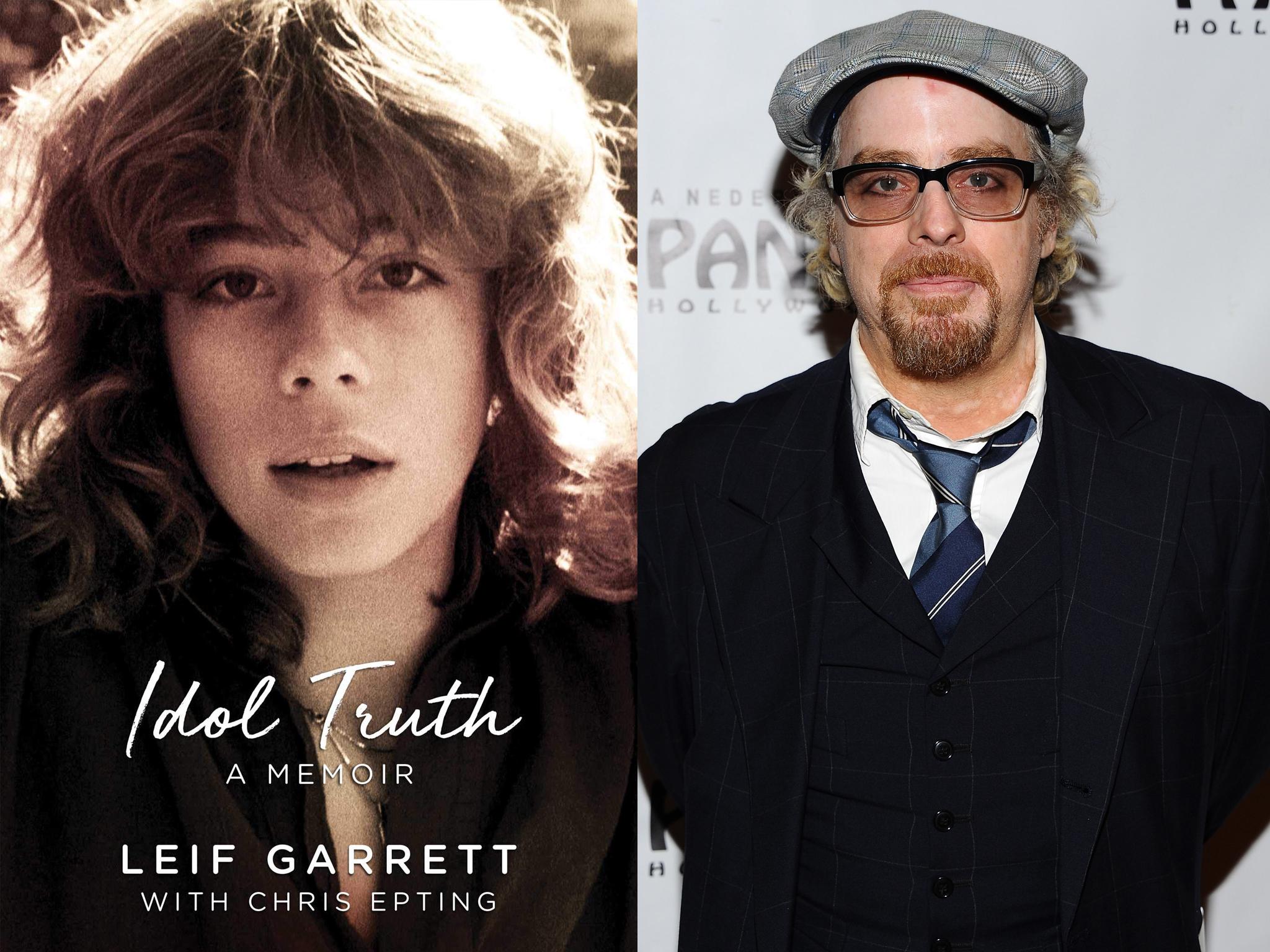
Teen Idol by Leif Garrett ★★★☆☆
One of the many low points in the life of Leif Garrett was when a female prison guard pushed an old photograph of the pop superstar into his cell and said, laughing out loud, “Look at you now, you f***ing loser.”
Garrett was the quintessential teen idol. At 58, he has written a painful memoir about his fall from stardom, detailing “the darkest and worst things I have ever been through”. In the early 1970s, the handsome youngster appeared in dozens of films and television shows. When he moved into the world of pop music, he became a global superstar. Then his life collapsed, in a whirlwind of heroin addiction, car crashes, bankruptcy and jail.
Among the colourful cast of characters in the autobiography, ghostwritten by Chris Epting, are Michael Jackson, Brooke Shields, John Belushi and Freddie Mercury. The book is packed with offbeat, startling anecdotes. Garrett had a close friendship with Belushi, whom he visited at Universal Studios during the filming of The Blues Brothers. The scene sums up the excesses of the 1980s. “John, bloated and wired, was sitting at a table with a mirror that had about ten lines of blow on it. Next to that was a tray full of sushi and, next to that, a carafe of sake.”
There are touching memories – playing football with Pele and Rod Stewart sounds fun – and he presents a vivid picture of how disorienting it must have been for an ordinary teenager from a “dysfunctional family” to suddenly find himself famous enough to have his own television special. Garrett’s account of taking 14-year-old Shields on a date is amusing. Evading the paparazzi was a piece of cake compared to the scary encounter with Shields’s famously protective mother. “Teri whispered to me, with disarming calm, ‘You touch her, I’ll kill you. If there are any photos taken, I’ll kill you. Do you understand?’” Garrett recalls.
Nothing matches the weirdness of Michael Jackson, though. In February 1979, 17-year-old Garrett travelled to the Swiss ski resort Leysin to appear in a television show with ABBA, Bryan Ferry, Kate Bush and the Jackson 5. “I could tell Michael Jackson was going to ask me for a little bit of advice, like he usually did,” recalls Garrett. “‘Leif,’ he said, with a mixture of both mischievousness and excitement, ‘Can you tell me how to… masturbate?’ Okay, I did not see this coming [sic].”
Garrett recounts in exacting detail how he gave Jackson a copy of Penthouse magazine and some Lubriderm. A giggling Jackson later told him the upshot. “’I couldn’t do it, Leif. I just couldn’t do it. But… I looked through the magazine… Leif,’ he said, all wide-eyed and high-pitched. ‘Man, those pictures are nasty.’”
Garrett, who was three years younger than Jackson at the time, reflects on the oddity of this behaviour. “You may be wondering, given what we know today about the many allegations against Michael regarding young boys, if I think he was hitting on me,” writes Garrett. “Honestly, I don’t know. Maybe he was. Maybe he was asking me about girls as an excuse to make a connection with me. I’ll never know, and he is not here to defend himself, so I won’t make any assumptions.”
Garrett’s descent is told with honesty and his experience “trapped being a teen idol” did a lot of damage. “I made a conscious decision to not bring children into this world because, I’m sorry, I think it’s too crazy and dangerous a place,” he concludes. What a sorry thing stardom can be.
Idol Truth by Leif Garrett is published by Post Hill Press/Permuted Press on 5 December, £20
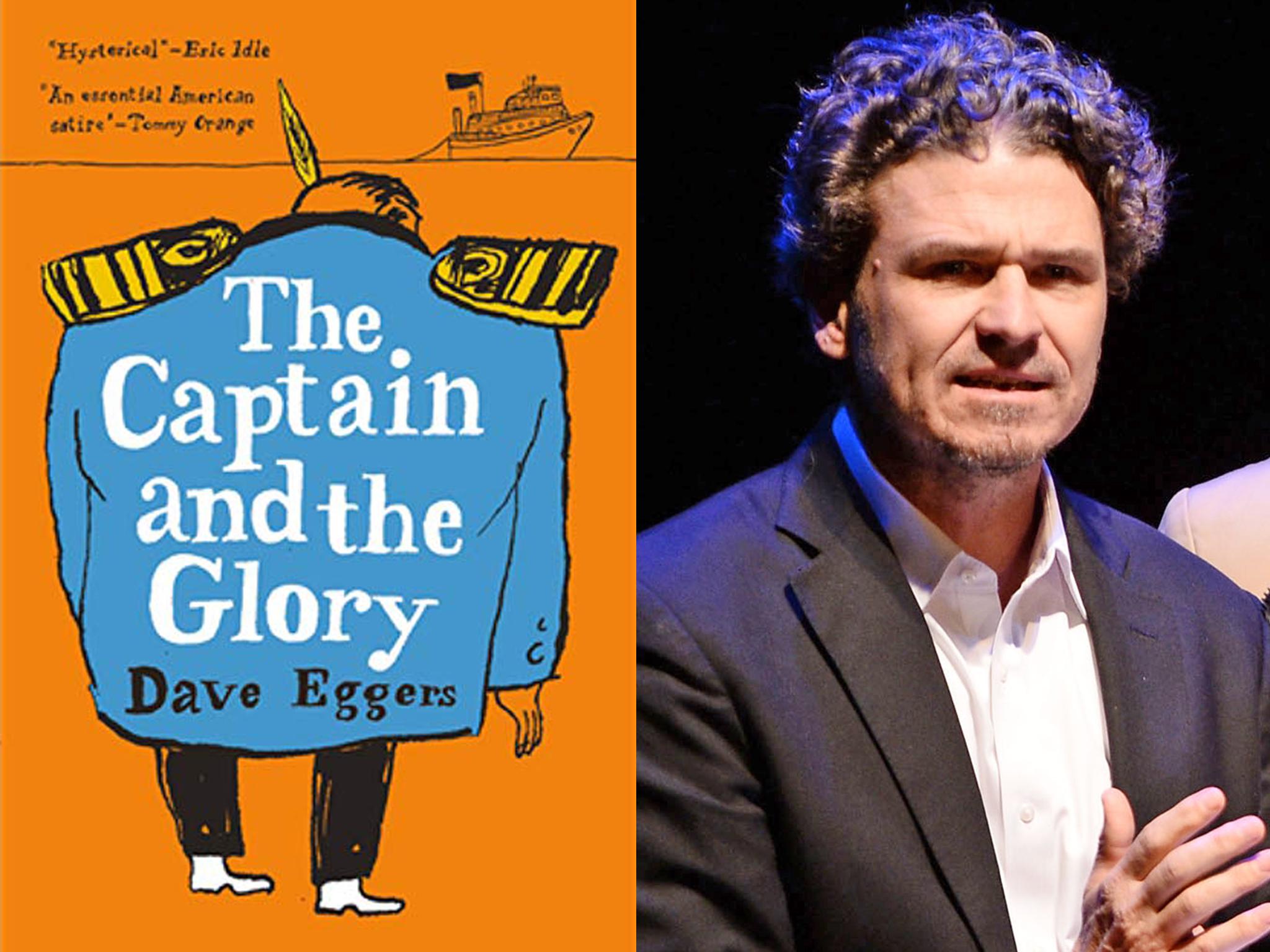
The Captain and the Glory by Dave Eggers ★★★★☆
Dave Eggers has written a short, witty fable about a “cretinous, erratic, nihilistic and dim” charlatan, who takes over as the Captain of a ship called Glory. Can anyone imagine who he has in mind?
Like the 45th president of the United States, the protagonist in Eggers’ tale is a germaphobe – he worries that “most forks were covered in pubic hair” – and has trouble sleeping, because he is “fighting a thousand battles in his mind against his former teachers who had not thought him brilliant, all the women who did not swoon when he pushed his genitals at them in elevators”.
The account of how the Captain rises to power is enjoyably broad satire. “I like that guy,” said one passenger, “he says anything that pops into his head!” The story details the coterie of petty thieves and confidence men who make a buck from the captain’s success. His friends include “a murderer named Patsy and a patsy named Michael”, while his supporters – “The Most Foul” – “like to chant whatever the Captain suggested they chant”.
The pot-shots are bitingly funny. The Captain hates swarthy passengers. He likes cheeseburgers wrapped in plastic and looking at young women with luxurious hair. Instead of spewing his opinions out on Twitter, Eggers’ leader writes capitalised messages on a wipe-away board for the passengers to read, such as, “MY P-NUS: MUCH BETTER THAN PREVIOUS CAPTAIN’S.”
I won’t give away the ending, except to note that it does offer some hope for how people may survive a leader who has “no taste or manners or filter or shame or sense of what was true and what was false”.
The Captain and the Glory by Dave Eggers is published by Hamish Hamilton on 6 December, £9.99
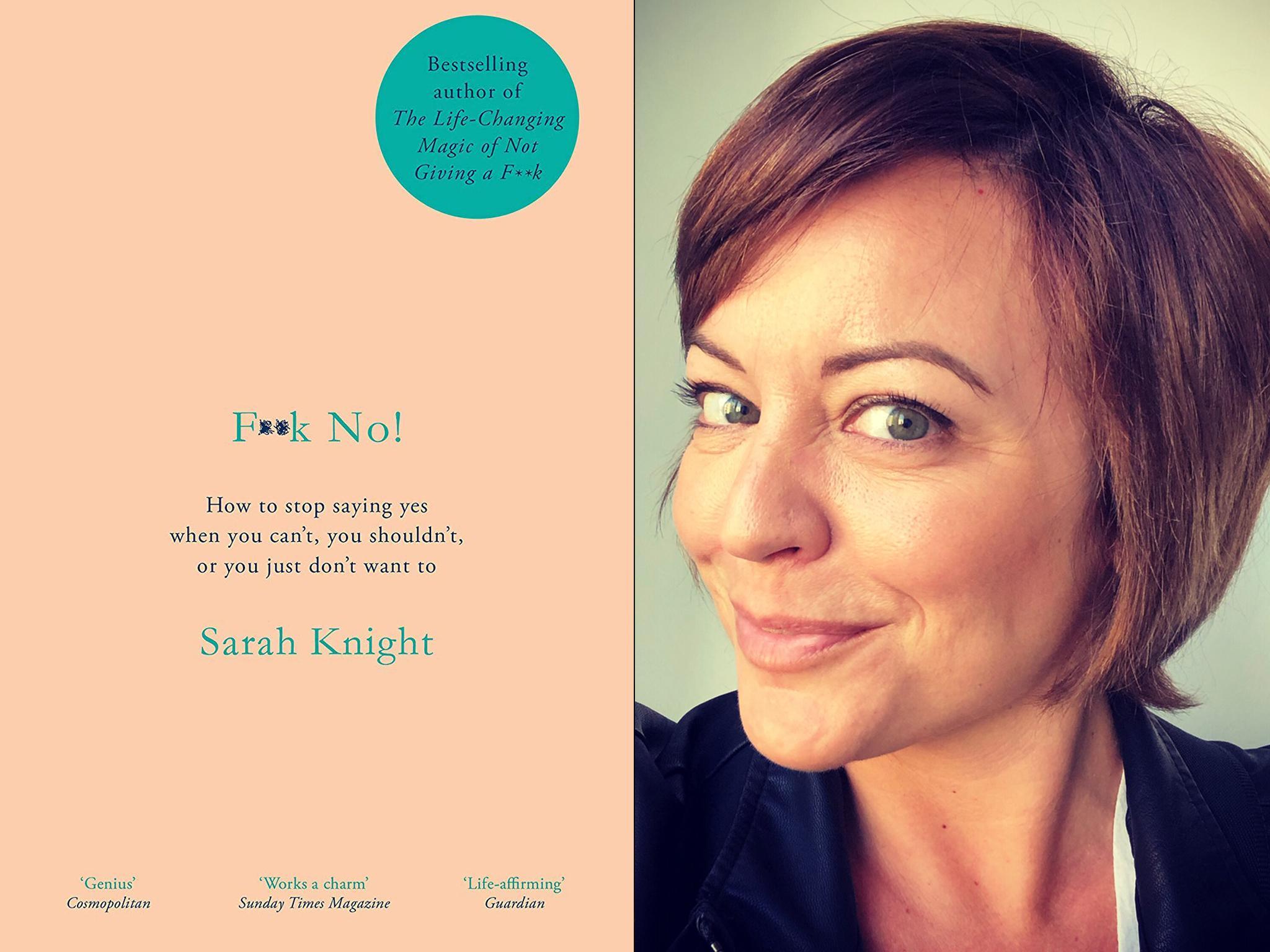
F**k No! How to stop saying yes when you can’t, you shouldn’t, or you just don’t want to by Sarah Knight ★★★☆☆
I never get invited to “networking events” but, thanks to Sarah Knight, I now know how to respond if asked… “No thanks. I hate that s**t”.
Knight’s The Life-Changing Magic of Not Giving a F**k was a massive hit in 2015 and the follow-up, F**k No!, will likely prove popular with readers keen to learn how to say “no” with confidence. This self-help guide is full of puns, such as “becoming a no-it-all”, and has charts, graphics and tables to fill in and concrete examples of how to say “no” while sparing someone’s feelings. Along with light-hearted advice, Knight neatly guides readers through more serious situations when saying “no” matters, such as dealing with unpleasant neighbours or avoiding being rushed out of a doctor’s surgery. Knight also deals with setting and enforcing sexual boundaries.
Knight’s advice about acceptable fibs and blunt refusals (“nope, next question”) can apply not only to strangers and colleagues but to close relatives. “Ultimately, your family are just people, and it’s okay to say no to them,” she states. That advice might come in useful the next time boring old Uncle Billy invites you to a family do in Worthing.
F**k No! How to stop saying yes when you can’t, you shouldn’t, or you just don’t want to by Sarah Knight is published by Quercus on 12 December, £14.99
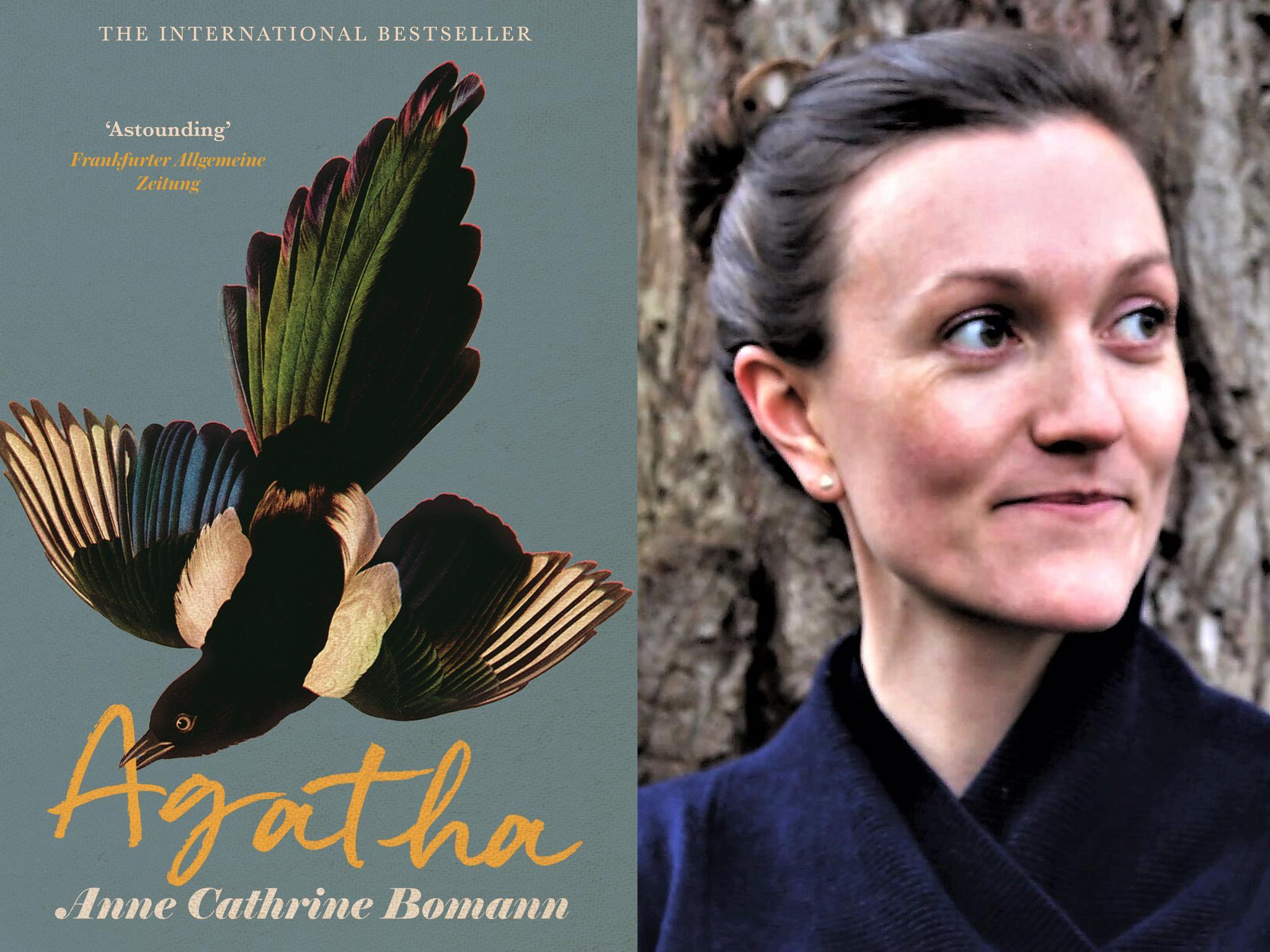
Agatha by Anne Cathrine Bomann ★★★★★
Anne Cathrine Bomann has an unusual background for a novelist. Bomann, who has written two poetry collections, a book about schizophrenia and a young adult story, is a Copenhagen-based psychologist who is also a 12-time Danish table-tennis champion.
She has received praise around the world for her wonderful debut novel Agathe, which is published in the UK this month as Agatha. The novel is translated by Caroline Wright and presented in a gorgeous cloth-bound edition.
Bomann played professional sport in France. She uses some of her old haunts as the setting for a novel based in Paris in 1948. The narrator is an unnamed 71-year-old psychiatrist, who is counting down to his retirement. He is jaded by his set of established patients and secretly mocks them for their “emotionally frigid marriages and wine bottles behind the bookcase”. He wonders if he can quietly die of boredom while Madame Almeida chunters on about her petty problems. “Disquiet and something much akin to sorrow collected in my chest, and I began to doubt whether I could last a whole day of compressed human suffering,” he admits. He is aware of his own dishonesty, and “disgusted” by this “sham”.
Everything changes when his secretary signs up 25-year-old Agatha Zimmermann as a new patient. As he slowly begins to fall for the mysterious, deeply troubled young German, we begin to understand his own loneliness and fear, and the “sad aches and invisibility of old age”. Although Agatha is like a wounded bird, she is not afraid of telling the truth. She is the first person to confront the psychiatrist about his own melancholy nature. “How can you understand other people if you don’t even know how you are?” she asks. The novel peels away the doctor’s mask to reveal a “bare, fearful man”.
Although the book is slight – 147 pages – it is a shrewd, skilful tale of loneliness, the search for meaning and a place in the world, and the problems of truly relating to another human being. The ending is sorrowful and joyful.
Agatha by Anne Catherine Bomann is published by Sceptre on 12 December, £9.99
Join our commenting forum
Join thought-provoking conversations, follow other Independent readers and see their replies
Comments